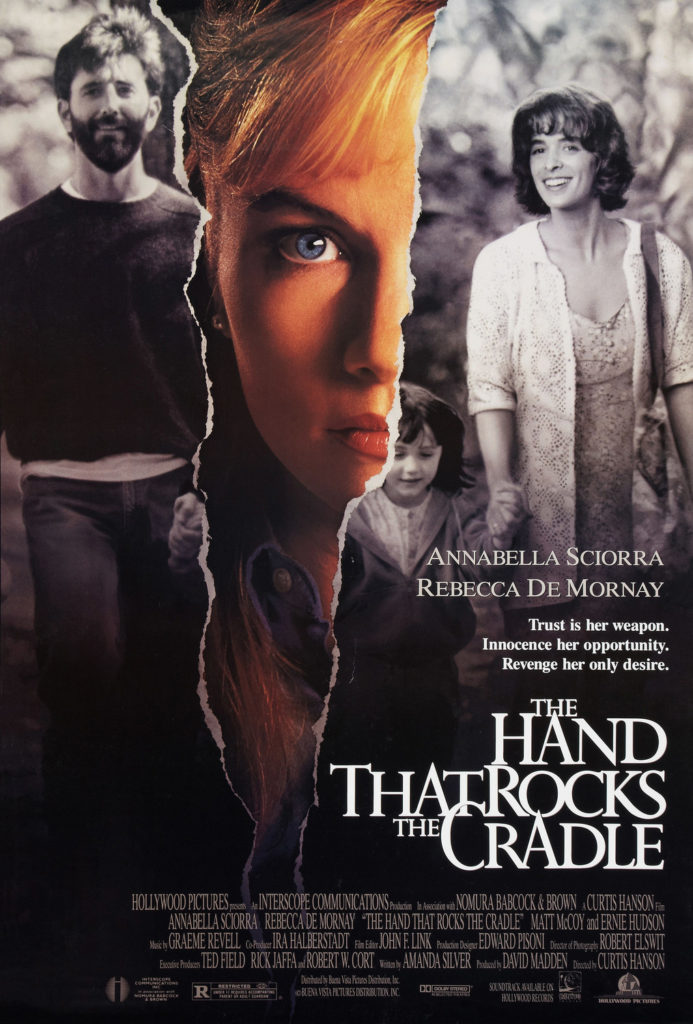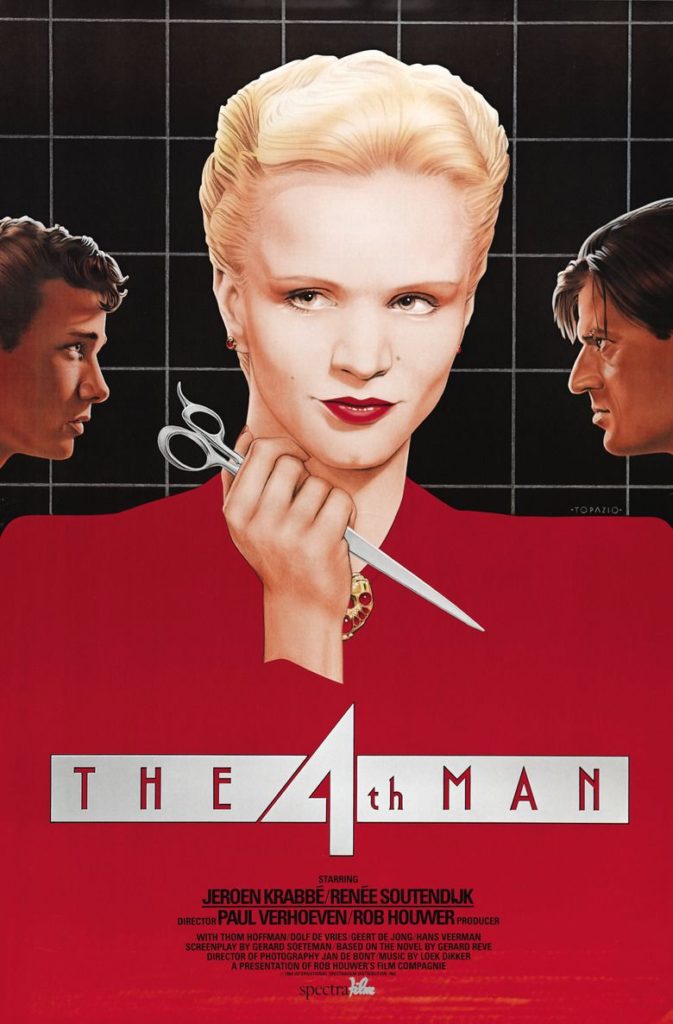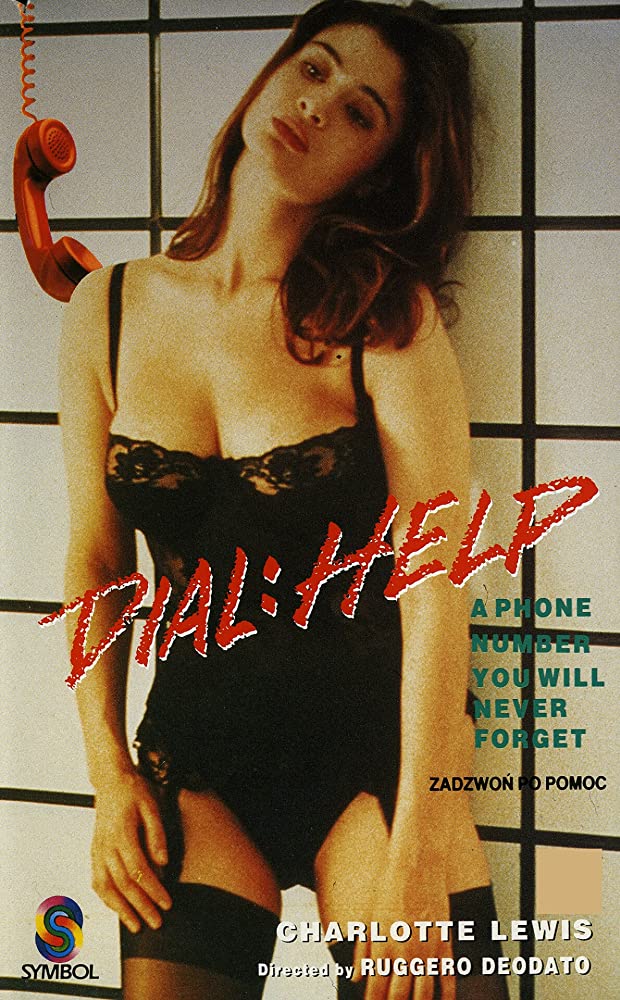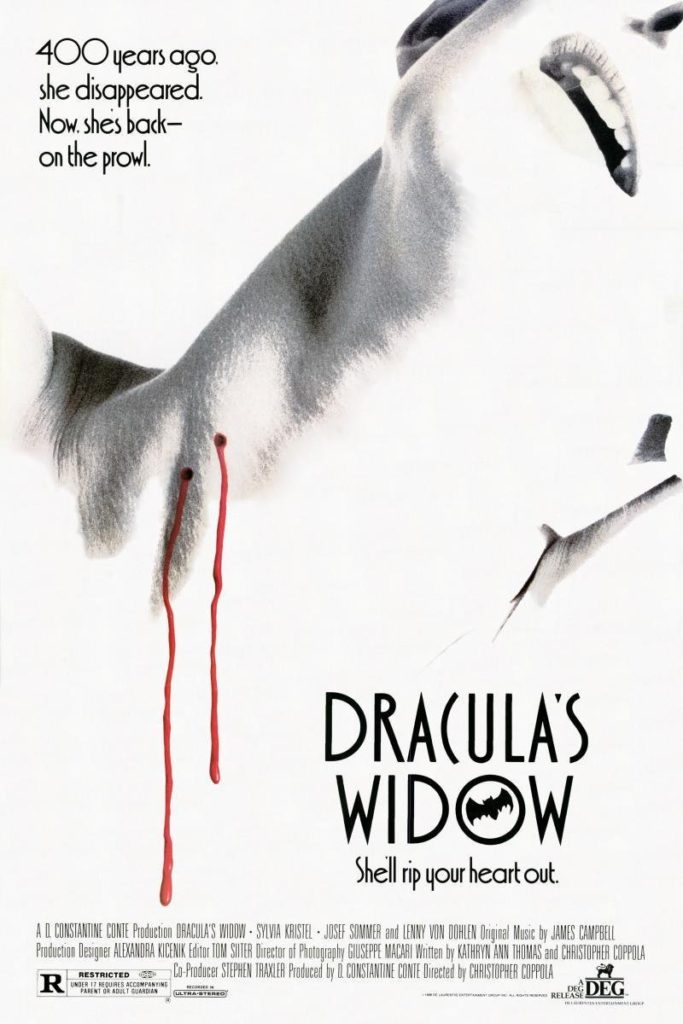Mad, Bad and Dangerous to Know
Psycho Females of the Screen
Those who believe in the concept of ‘the gentle sex’ should bear in mind that there are far more successful serial killers in history than Henry Lee Lucas, Ted Bundy or any similarly boring wimps. According to the Guinness Book of Records, among the all-time champions is Countess Erszbet Bathory, who offed about 650 peasant girls in medieval Romania. Now, obviously she had an advantage living in an era when the ruling class could do whatever they wanted to the rabble – nowadays, they have to hold an election first (hah! Political satire!) – but it’s still impressive evidence that psychosis is not purely masculine.
And murderous or otherwise insane women have been a common feature of entertainment since very early days. Greek theatre had it’s Clytemnestra, wandering the streets, shrieking prophecies and maledictions. Shakespeare has Lady Macbeth and Ophelia, to name but two (I’m using “psycho” here as a generic catch-all, rather than a psychological specific!). But this year, they would seem to be “in”. Imminently, we’ll get Drew Barrymore psycho-teening as ‘Poison Ivy’ and we’ve already had ‘The Hand That Rocks The Cradle’ (see below) and ‘Single White Female’, which stars Jennifer Jason Leigh, who’s made a career out of playing variously unstable characters.
Most fall into one of four broad groups:
- a) Revengeful
- b) Femme Fatale
- c) Euro-psycho
- d) Supernatural.
though naturally there is an element of overlap. Let’s take each of these in turn, and examine a specific example.

The Hand That Rocks The Cradle (Curtis Hanson)
Rebecca de Mornay, Annabella Sciorra.
To some extent, the success of this film could have been predicted. The biggest trend in horror films of recent years has been “body horror”: the threat is internal, the threat is YOU. Combine this with the breakdown of moral values (for which Hollywood, according to Dan Quayle, is to blame) and it’s a logical step to have the threat coming from within the family, trying to destroy it. That the protagonists are woman should be no surprise either: “female” = “family” as far as Hollywood is concerned. On one level, ‘The Hand…’ is a predictable affirmation of these traditional values, and fits in entirely with expected patterns. But it escapes from the limitations placed on it, thanks to polished execution all-round.
After ten minutes, the viewer could be forgiven for checking his ticket to make sure they’re in the right cinema as it starts off as some sort of medical rape film, as Annabella Sciorra is assaulted by her doctor during a gynaecological examination. Following this disconcerting start, all becomes clear after she goes public with the case: the doctor commits suicide and his wife (Rebecca de Mornay) has a miscarriage. Several months later, said wife turns up on Sciorra and hubby’s doorstep, surely the perfect nanny for the new-born child…
De Mornay wants the child very badly, to replace the one she lost, and sets about systematically wrecking the family, turning husband and daughter against mother, and getting rid of anyone she perceives as a threat, in a spectacular display of perverse cunning that had me grinning at every turn of the screw. It’s neatly constructed, and suitably twisty, though you can spot the plot devices as they appear – a set of wind-chimes here, an asthma inhaler there – for ticking off as they’re used later, and at the end it does degenerate into something a little too familiar to ‘Friday the 13th’ fans. Still, it’s substantially better than any of that series – can’t help thinking how Rebecca de Mornay and Anthony Hopkins would make a fine couple! B.

The Fourth Man (Paul Verhoeven)
Jeroen Krabbe, Renee Soutendijk.
In the wake of all the fuss surrounding ‘Basic Instinct’, now seems a good time to mention Paul Verhoeven’s earlier shocker, about a writer (Krabbe) who has an affair with a thrice-widowed lady (Soutendijk), only to discover she might have killed all of her previous husbands. Those protesting about the portrayal of homosexuals in ‘Basic Instinct’ should maybe have seen this film before whining, as it does show Verhoeven is no homophobe.
The film has a lot of parallels with his latest work: both films have blond, literary females, who may or may not be psychopaths – in neither film is it ever made 100% clear whether it’s just masculine paranoia. A non-heterosexual love triangle is a significant element of both and neither movie has a truly heroic figure, with both Douglas and Krabbe, scheming creatures not all that far away from psychosis either. Both films also have significantly pleasant helpings of sex and violence.
Where ‘The Fourth Man’ scores over ‘Basic Instinct’ is it’s cross-genre delivery. It’s not only a thriller, but a love story, a religious parable, a dissertation on the nature of reality, and has the one of the all-time best dream sequences I’ve ever seen in the cinema. Aided by a pair of performances that are virtually perfect (tho’ less so in the dubbed video version than at the cinema), while this may or may not be more enjoyable than Verhoeven’s work since coming to Hollywood, it’s undoubtedly more interesting.
Renee Soutendijk was most recently seen in ‘Eve of Destruction’, as a psychopathic robot (if a robot can be thus described, having no psyche to go pathic about). Some things never change. A+.

Dial: Help (Ruggero Deodato)
Charlotte Lewis, Marcello Modugno
A general rule of thumb in continental movies is that the prettier the actress, the looser her grip on sanity – if this has any basis in reality, it’s worth remembering the next time you contemplate a holiday romance. In any case, Euro-psychos form a distinct sub-class: the classic example is Beatrice Dalle in ‘Betty Blue’, a nose ahead of Isabelle Adjani, whose career almost seems to be based on psychopathy, and there’s barely an actress in France who hasn’t been warped at some point.
While the French generally concentrate on femme fatales, with a healthy dose of revenge, the Italians, probably thanks to the influence of Dario Argento and his crew, seem to prefer the supernatural aspects as this sub-genre allows the director to almost completely dispense with the plot, in favour of scriptual hand-waving about “the occult”. Only the Italians could possibly make a film about killer phones, such as “Dial: Help”.
Jenny (Charlotte Lewis) is a model, who dials a wrong number and somehow – handwave, handwave – taps into a source of energy, which (understandably) decides to fancy her. It starts offing anyone it perceives as a threat or who is nasty to Jenny (I’m not sure which category her goldfish, who also get it, fall into) in a variety of interesting ways, most notably the mugger shot by high-velocity coins fired from the reject slot of a coin box.
Very little of this film makes any sense at all, yet the whole thing is really quite enjoyable. The improvement over the annoying plotlessness of Argento is that once you accept the premise – admittedly silly – of an intelligent, insane telephone number, the rest of the film is plausible, at least by comparison. Argento piles idiocy upon idiocy until even my disbelief can no longer be suspended.
As for the female psycho, Charlotte Lewis starts off okay, but by the end is seriously cracking up. The final proof of this is her decision to dress up in stockings, suspenders and a black basque, purely to roll around in the bath for five minutes. While this casts doubts on her character’s sanity, it proves that director Deodato knows how many beans make five. The entire scene is completely gratuitous, adds nothing to the story, and is quite, quite wonderful. B+.

Dracula’s Widow (Christopher Coppola)
Sylvia Kristel, Lennie van Dohlen
Equal opportunities in the occult are a variable kinda thing. In certain fields, such as werewolves, men have the field almost to themselves – the most notable exception being Sybil Danning in ‘The Howling 2′ – maybe because hairy palms are not considered aesthetically appealing. On the other hand, the “possessed teen” genre has been mostly a girls’ domain; Regan, Carrie, Mary Lou and their kin. Somewhere in the middle stands the vampire, currently undergoing something of a renaissance thanks to Gary Oldman’s appearance as Dracula. But it was not the first Coppola version of the story, although “Dracula’s Widow” is certainly not Francis Ford in action.
Not all female vampires can be classed as obviously insane – Delphine Seyrig, in ‘Daughters of Darkness’ is as cool and collected an individual as you could see – but drinking human blood is not normal behaviour by most standards (except in certain parts of the West of Scotland…). And when combined with scenery-chewing, such as we see Sylvia Kristel doing here, we’re definitely deep into the zone of the ‘differently sane’.
She arrives in America enclosed in a crate sent to the Hollywood House of Wax, A run-down establishment operated by Lennie van Dohlen and his girlfriend. Kristel chomps her way through various members of the community and turns Van Dohlen into her accomplice as she seeks a somewhat belated revenge on Van Helsing. He’d offed her husband back in Transylvania a century ago, so isn’t about but any descendant of his will do. He, meanwhile, starts to view his girl-friend, less as a sex object, and more as lunch.
The film seems uncertain whether it’s tongue-in-cheek or not; some elements are definitely parody-ish, while others seem intended to be taken seriously, and the whole thing looks seriously patchwork as a result. This uncertainty extends to the era – could be anytime from the 40’s on. Try turning the colour off and viewing it in b&w, as this enhances the faux-noir feel, though you do lose the icky bits.
Still, van Dohlen’s performance is engagingly loopy, reminiscent of a young Anthony Perkins and Sylvia Kristel – remarkably, keeping her clothes on with unusual decorum – manages to be convincingly European, though I imagine actually being European is something of an advantage. Overall, as TVM’s go, it’s an amiable way to pass ninety minutes and it’s several steps above Stuart Gordon’s very disappointing ‘Daughter of Darkness’. C-.
